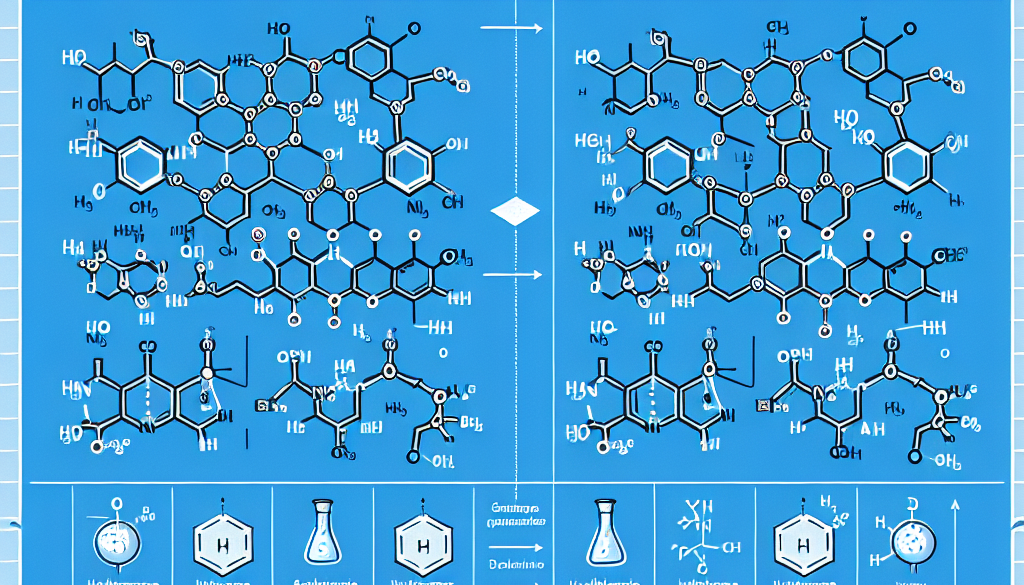Is Sodium Hyaluronate and Hyaluronic Acid the Same?
-
Table of Contents
- Sodium Hyaluronate vs. Hyaluronic Acid: Understanding the Differences
- Introduction to Hyaluronic Acid and Sodium Hyaluronate
- Chemical Structure and Properties
- Benefits in Skincare and Medicine
- Applications in Health and Beauty Products
- Comparative Analysis: Which One Should You Choose?
- Conclusion: Key Takeaways
- Explore ETprotein’s High-Quality Protein Products
Sodium Hyaluronate vs. Hyaluronic Acid: Understanding the Differences
In the world of skincare and health supplements, certain ingredients gain spotlight for their profound benefits, and among them, hyaluronic acid has been a buzzword for a while. However, closely related and often confused with it is sodium hyaluronate. This article delves into whether sodium hyaluronate and hyaluronic acid are the same, exploring their similarities, differences, and uses in various industries.
Introduction to Hyaluronic Acid and Sodium Hyaluronate
Hyaluronic acid is a naturally occurring polysaccharide found in the human body, known for its capacity to attract and retain large amounts of moisture. It plays a critical role in skin hydration, joint lubrication, and overall tissue health. Sodium hyaluronate, a derivative of hyaluronic acid, is its salt form, which has unique attributes and advantages in both medical and cosmetic fields.
Chemical Structure and Properties
Understanding the chemical nature of these compounds is essential to distinguish between them effectively:
- Hyaluronic Acid: It is a large molecule, consisting of repeating disaccharide units of glucuronic acid and N-acetylglucosamine. This structure is capable of holding up to 1,000 times its weight in water, which accounts for its excellent hydrating properties.
- Sodium Hyaluronate: When hyaluronic acid undergoes a process of saponification, it converts into sodium hyaluronate. This form has a lower molecular weight, which allows it to penetrate the skin more easily than hyaluronic acid.
Benefits in Skincare and Medicine
Both compounds are celebrated for their benefits, but their applications can differ significantly due to their distinct physical properties:
- Hyaluronic Acid: Often used in products designed for surface hydration, it helps form a barrier on the skin’s surface, giving it a plump and hydrated look.
- Sodium Hyaluronate: Due to its smaller molecular size, it is more commonly found in serums and creams where deeper penetration is desired. It is effective in treating wrinkles and fine lines from within.
Applications in Health and Beauty Products
The versatility of these ingredients makes them popular in various products:
- Skincare: From moisturizers and serums to masks and eye creams, both ingredients are integral in formulations aimed at hydrating and anti-aging.
- Supplements: Hyaluronic acid supplements are often recommended for joint health, improving mobility and reducing pain associated with conditions like osteoarthritis.
- Medical Uses: Hyaluronic acid is used in eye surgeries and injections for osteoarthritis, while sodium hyaluronate finds its use in injectable dermal fillers to smooth out wrinkles.
Comparative Analysis: Which One Should You Choose?
Choosing between hyaluronic acid and sodium hyaluronate depends on the specific needs and desired outcomes:
- For Deep Hydration: Sodium hyaluronate is preferable due to its ability to penetrate deeper into the skin.
- For Surface Moisture: Hyaluronic acid is ideal for forming a moisture barrier on the skin’s surface.
- Medical Treatments: The choice depends on the application method and the targeted condition.
Conclusion: Key Takeaways
While sodium hyaluronate and hyaluronic acid are closely related, they are not the same. Each has unique properties and uses that make them suitable for different applications in skincare, health supplements, and medical treatments. Understanding these differences can help consumers and professionals make informed choices about which ingredient is best suited for their needs.
Explore ETprotein’s High-Quality Protein Products
If you are looking for top-quality protein supplements, consider exploring ETprotein’s extensive range of products. They offer a variety of organic and allergen-free protein options perfect for enhancing your health and wellness regimen.
ETprotein is Sodium hyaluronate Factory Manufacturer and Supplier in China, Check further information by visiting the Sodium hyaluronate Product Page
Sodium hyaluronate Product Page
Request Quotation and Samples of Sodium hyaluronate from ETprotein
About ETprotein
ETprotein, a reputable protein and elite nutrition ingredients Sodium hyaluronate Chinese factory manufacturer and supplier, is renowned for producing, stocking, exporting, and delivering the highest quality organic bulk vegan proteins and elite nutritional ingredients Sodium hyaluronate. They include Organic rice protein, clear rice protein, pea protein, clear pea protein, watermelon seed protein, pumpkin seed protein, sunflower seed protein, mung bean protein, peanut protein. Their offerings, characterized by a neutral taste, non-GMO, allergen-free attributes, cater to a diverse range of industries. They serve nutraceutical, pharmaceutical, cosmeceutical, veterinary, as well as food and beverage finished product distributors, traders, and manufacturers across Europe, USA, Canada, Australia, Thailand, Japan, Korea, Brazil, and Chile, among others.
ETprotein specialization includes exporting and delivering tailor-made protein powder and finished nutritional supplements. Their extensive product range covers sectors like Food and Beverage, Sports Nutrition, Weight Management, Dietary Supplements, Health and Wellness Products, and Infant Formula, ensuring comprehensive solutions to meet all your protein needs.
As a trusted company by leading global food and beverage brands and Fortune 500 companies, ETprotein reinforces China’s reputation in the global arena. For more information or to sample their products, please contact them and email sales(at)ETprotein.com today.














